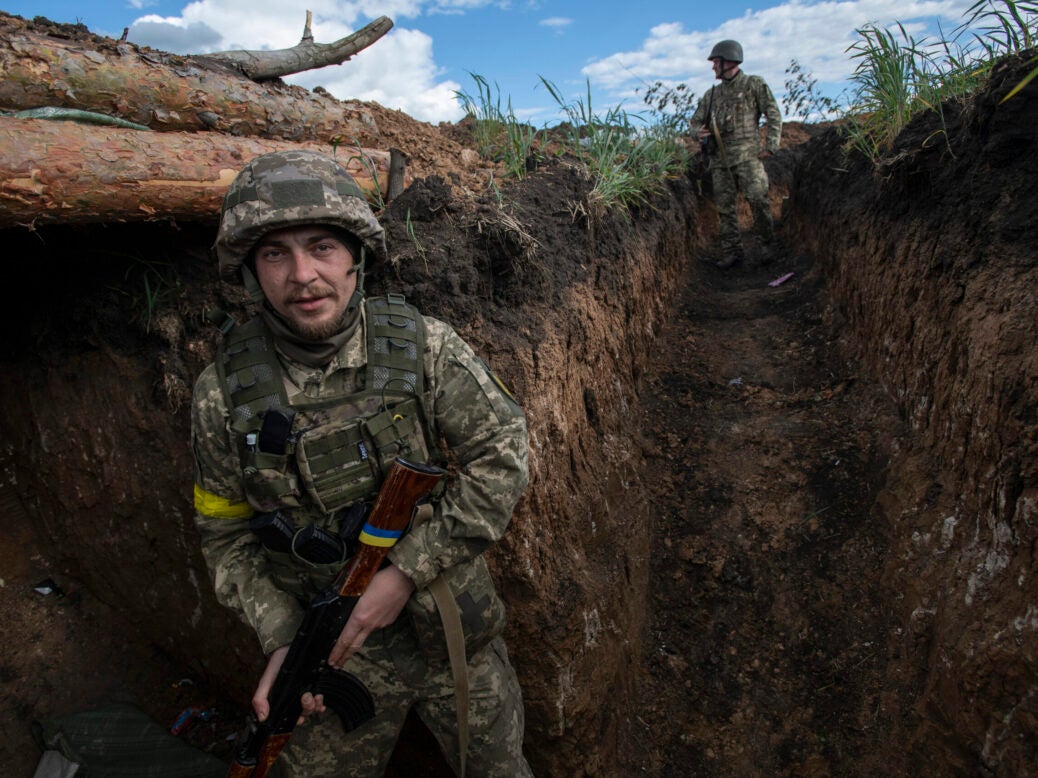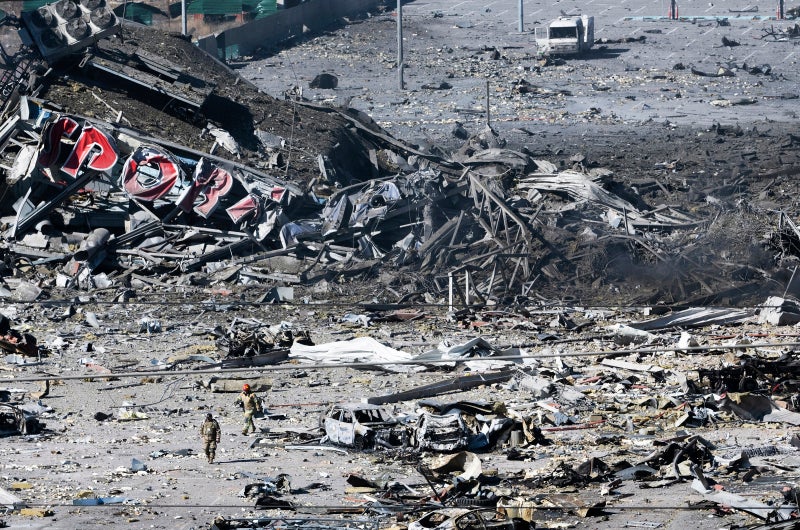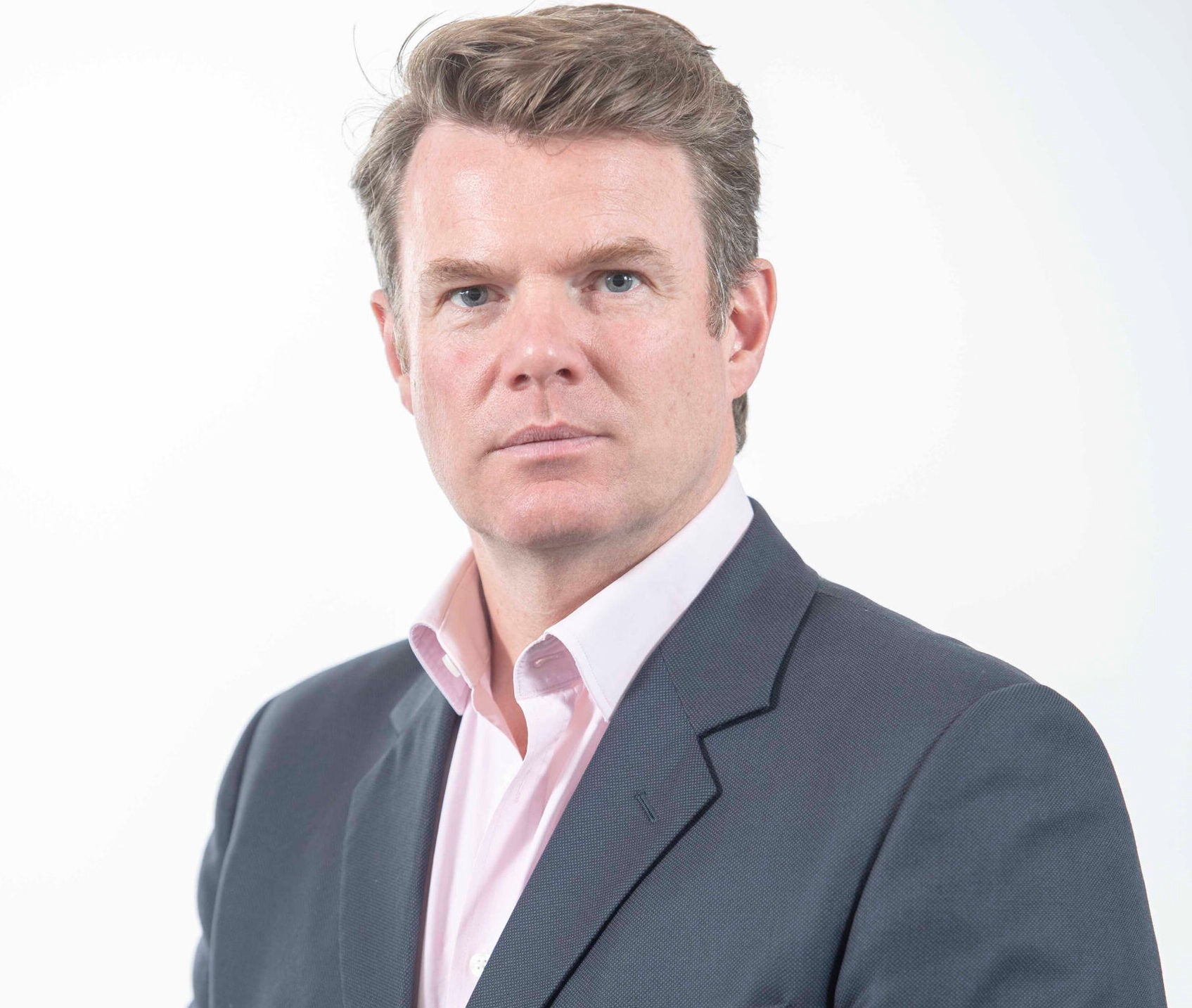
Russia launched its full-scale invasion of Ukraine almost 300 days ago, leading some to argue that news consumers are tired of hearing about the conflict.
But the Telegraph team behind Ukraine: The Latest, a daily Twitter Spaces conversation and podcast, say it is a misconception that appetite for regular updates and analysis from the war has substantially tailed off following the record high seen by many in February and March last year.
To date, Ukraine: The Latest has topped 16 million listens, with 2.9 million listens (including downloads and Youtube listens) in November – up from 1.6 million in October. More than 70,000 people typically listen each day and it quickly became The Telegraph’s most successful podcast to date.
Dominic Nicholls, The Telegraph’s associate defence editor who is a regular contributor to Ukraine: The Latest, told Press Gazette he “knew it was going to work”.
Drawing on his 23 years in the Army before becoming a journalist, Nicholls said: “War is an endlessly fascinating business. It is a very human businesses. It’s horrific, but it is very human.”
The Telegraph’s head of podcasts Louisa Wells agreed: “The interest is there. We’ve seen the numbers, we’ve seen it in our messages that we receive every day. And like Dom said, it’s because of the human stories that are coming out with this conflict, and people don’t get bored of human stories.”
‘We realised something was happening here’
Ukraine: The Latest has been shortlisted for Innovation of the Year at the British Journalism Awards this week for its rapid launch by a cross-newsroom team led by the social and podcast desks.
Hosted by head of social media David Knowles, it began life in the first days of the war as a live discussion on Twitter Spaces, the platform’s audio feature that launched in 2021, featuring Telegraph journalists, Ukrainians and experts.
It went live at lunchtime for UK listeners and breakfast time for those on the East Coast of the US and The Telegraph drew on lessons from its previous experiments with Twitter Spaces, for example by running regular discussions after Prime Minister’s Questions on Wednesdays.
After several days of strong numbers, the newsroom realised the potential to take the Twitter Spaces content and put it out to a wider number of listeners via a podcast, with cleaned up audio and some extra content in the form of pre-recorded interviews from guests who cannot take part in the live discussion.
Nicholls said: “We collectively realised that something was happening here, the appetite was so strong for a daily offering and events in the war were happening so fast that it was irrelevant to try and do a weekly – and even daily there was just so much.”
Wells added: “We had this product that was doing so well in a different forum and it was such a waste to not then repackage it.”
The podcast goes out in time for the evening commute in the UK and lunchtime in New York and Washington DC, reaching “beltway Washington decision makers, an audience that isn’t a natural audience for The Telegraph” according to Nicholls. Some 75% of the podcast’s audience is overseas, mostly in the US.

Wells added that listeners of the audio products have become The Telegraph’s “most engaged audience”.
Many listeners have shared that they have subscribed to The Telegraph because of the podcast, including some in the US who may not normally have interacted with the brand and others who described themselves in emails as “not a stereotypical Telegraph person”.
Telegraph journalists careful not to ‘showcase’ themselves
Podcasts are often credited for their ability to build more of a relationship between the audience and hosts because they allow them to show more of their personality and speak more casually than a typical news article or feature would allow.
But Nicholls said although The Telegraph team show their human side, it has never been about them and they are not trying to “showcase” themselves but rather the important stories they want to tell.
“One of the things I appreciate most about my colleagues here is that there’s been no hint of us thinking that it’s about us or us enjoying this, going ‘hey isn’t this fun?’ There’s always that omnipresent awareness that there’s death and destruction happening as we speak,” he said, noting times air raid sirens could be heard in the background of interviews. “We’re very aware that this is a war.
“This is not a fun jolly politics podcast… Occasionally there are lighter moments but that is because it’s a very human podcast and we always understand what it’s there for – it’s not about us.”
Ukraine: The Latest has become a massive operation, using journalists from all around the newsroom like the foreign, tech and health desks to come and explain and discuss the stories they have reported.
Nicholls said it had become easier to persuade newbies to join the Spaces and podcasts as they realised the scale of its audience – “It’s been some months since I heard the phrase ‘your Twitter thing'” – and the fact he and Knowles are not trying to catch them out and have created a “safe space to just spread good journalism”.
He added: “Arguably if you want to try and influence things and you want to try and stop wars – which sounds very grand, but hey, why not? We’re journalists, and that’s what we want to do – then we’re reaching the right people, and… we’re a platform for the voices of Ukrainians to speak to people they might never have a chance. So I think it’s incredibly powerful and an incredible privilege and we never forget that.”
‘Pleasantly surprised’ Ukraine: The Latest audience did not drop off
Other UK news publishers do provide daily updates from Ukraine, including The Guardian and Sky News which run online live blogs. But Ukraine: The Latest is the only remaining daily audio offering in the UK, with NPR’s State of Ukraine its closest comparison in the US although it provides often much shorter updates.
The BBC’s Ukrainecast, a major force in the early days of the war, stopped releasing episodes every weekday in the summer.
Wells said The Telegraph’s commitment to keeping up the momentum had paid off in September when Ukraine took back a swathe of towns and cities that had been occupied by Russia.
“I expected maybe the interest would drop off and I was pleasantly surprised that that wasn’t the case,” she said. “With any subject you might see a lull in summer and things like that, but we just kept seeing our numbers continuing and I thought there’s no reason why we should slow down and do fewer episodes if the numbers are still there.
“And also we’ve built up quite a relationship with our listeners – we get so much interaction and input from people around the world and from people in Ukraine or Ukrainians that have left around the world and we felt like we didn’t really want to let them down by scaling back what we were doing.
“And then it did mean that by the time the Ukrainian pushback happened in early September, we were one of the few platforms that were still doing daily updates and it meant that we saw a huge uptick in numbers at that time.”
Wells noted that the continued growth has happened despite an increase in the podcast’s length from about 30 minutes per day to one hour.
She said the audio desk had resisted this at first because the “conventional pod wisdom is not to go above about 40 minutes” but they soon learned “the appetite is very much there”.
“The numbers haven’t dropped off since we’ve let the time creep up. So people just really want that in-depth analysis, and I think that’s it – it’s that what we’re offering is much more in-depth and every day, which people aren’t finding anywhere else.”
Nicholls pointed out he can say 5,000 to 6,000 words in an hour-long podcast – around ten Telegraph page leads’ worth. “Of course it’s all down to the quality of the words you say but… if you’re primarily interested in a geopolitical defence security examination of Ukraine… you’re going to get a lot more than you would in your normal daily offering elsewhere.”

Nicholls firmly believes it is an important mission for The Telegraph and other news brands to continue highlighting the horrors of the war.
Speaking about the fact people’s loved ones have been killed, maimed and raped, Nicholls said: “There are people who are doing that right now and if you think that’s acceptable in this world, to anyone, then fine. Go and find another podcast. I don’t want you to listen to us.
“If you don’t think that is acceptable, then you need to listen to us because you need to stay angry. I’m angry every day. I’m exhausted. I’m angry every day. This thing drives me up the wall. And that’s good.
“It has to drive us up a wall because otherwise, people like Putin and those that are doing this in Ukraine, they’ll get away with it. And they cannot. We cannot allow them to get away with it.”
He quoted Australian army officer David Morrison, who said: “The standard you walk past, is the standard you accept.”
“I’m not suggesting this should dominate everyone’s waking moment,” Nicholls said. “But if we allow this to happen on our watch, then more fool us when it happens again and happens to us… we can influence this, we can stop it. But it takes all of us to do something and it takes all of us to push back against people who say I’m just not interested anymore.
“We have to be interested because this is the standard and we either deal with it or we walk past it.”
Email pged@pressgazette.co.uk to point out mistakes, provide story tips or send in a letter for publication on our "Letters Page" blog
